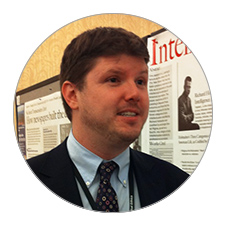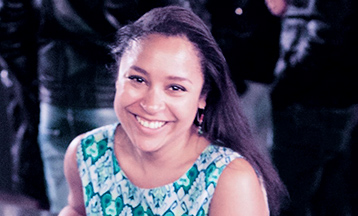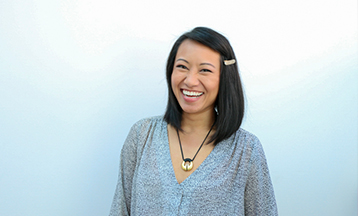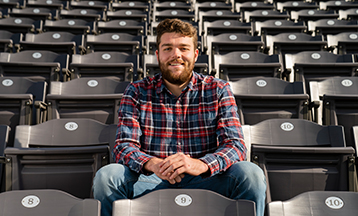-
About
Admitted Student Days
• Saturday, March 28
• Sunday, March 29
• Saturday, April 11Accepted Students: Be sure to register for one of our Admitted Student Days and explore all that Marist has to offer.
About
-
Academics
Admitted Student Days
• Saturday, March 28
• Sunday, March 29
• Saturday, April 11Accepted Students: Be sure to register for one of our Admitted Student Days and explore all that Marist has to offer.
Academics
-
Admission & Financial Aid
Admitted Student Days
• Saturday, March 28
• Sunday, March 29
• Saturday, April 11Accepted Students: Be sure to register for one of our Admitted Student Days and explore all that Marist has to offer.
Admission & Financial Aid
-
Student Life
Admitted Student Days
• Saturday, March 28
• Sunday, March 29
• Saturday, April 11Accepted Students: Be sure to register for one of our Admitted Student Days and explore all that Marist has to offer.
Student Life
- Athletics
Students talking to each other in front of posters

Kevin Lerner
Poughkeepsie, NYAcademic School
Communication & the ArtsCampus
New YorkDr. Kevin Lerner is a journalism professor at Marist, teaching topics ranging from the history of journalism, mass communication law, journalism as literature, to basic reporting and writing classes. He also serves as the faculty advisor for the Marist chapter of the Society of Professional Journalists.
When did you join Marist?
I started in the fall of 2009 as a visiting assistant professor and began my current position as a tenure-track assistant professor in the fall of 2014.
What inspired you to work at Marist?
I had been teaching on a one-year appointment at Seton Hall University, and I was looking for another position to support myself while I finished my Ph.D. The timing worked out perfectly, and I could get here from New York City, where I was living at the time. Academic jobs are sometimes a matter of luck since what we do is so specific and there are so few positions available. I'm lucky to have found myself in such a great place at exactly the right time.
Why is it essential for journalism to be taught properly?
I don't think that there is one "proper" way to teach journalism, but I'll answer why I think journalism education is so important, however it is taught. Journalism, when done well, amplifies the discussion of the civic sphere. That's true in all societies, but especially in ones that purport to be democratic. As one of my favorite books, the Elements of Journalism says, "journalism provides citizens with the information they need to be free and self-governing." It is a medium for the spread and continuation of culture. It creates our government and holds it accountable. It tells people what they need to know and want to know. What could be more important than that?
What do you love about journalism that made you decide you wanted a career in it?
I got into journalism at first because I love words. I love writing. I went to college thinking I would be a great novelist of some kind. Or a humor writer. But I fell in with a weekly entertainment magazine published by my college's daily newspaper, and I loved writing about music and movies. By senior year, I had become the editor. And I applied to law schools and one journalism school—Columbia University. I did that last one just on a whim. I'm not sure I was in love with journalism then. And to be honest, I didn't like journalism school at all (though I feel great loyalty to Columbia's J-school now). I wasn't prepared for it. I didn't really know at the time what journalism was. So I never really decided to have a career in journalism, but I think that was a good thing in the long run, because not being prepared for J-school made me think a lot about what they were doing, and to think about journalism rather than doing it. I think I'm a good journalist, but I know I'm better at thinking and writing about it than I am at doing it myself. And I think that slight bit of distance from the profession makes me a good critic and teacher of journalism, too.
How do you connect your own experiences to your classroom?
I talk about some of my reporting when I'm teaching various topics in the classroom, and I like to bring in guest speakers, people I know from the industry who are still working now. But I think that the number one thing from my professional journalism career that I take to students is the idea that journalism is 80% information gathering and 20% figuring out how best to tell the story. It's an information career. I learned that by experience. No one bothered to tell me.
What is something you hope your students take away from your classroom?
I hope that my journalism students come away not just good journalists, but self-aware journalists. Reporters who ask questions of other people, but also of themselves. Constant self-criticism is the key to making the move from being a solid reporter to being a leader in the field.
What is it that you love about Marist?
What I really like about Marist is the balance between pre-professional programs like journalism and communication more generally and the liberal arts core. I know students grumble about the liberal arts part their education sometimes, but for journalists in particular, it's essential to be a good critical thinker and to have a humanistic understanding of the world that you can bring to your reporting. Sometimes I'm even convinced that this is more important than any of the specific skills that you might learn in a journalism class. But I also see journalism as a kind of "applied liberal arts," the way that engineering is an applied science. As a journalist, you take your critical thinking and information gathering and analytical abilities and apply them to the world.
What is something about yourself that you want a prospective journalism student to know?
I hate making phone calls as much as you do, but we both know you have to do it.
Written by Adriana Belmonte '17



